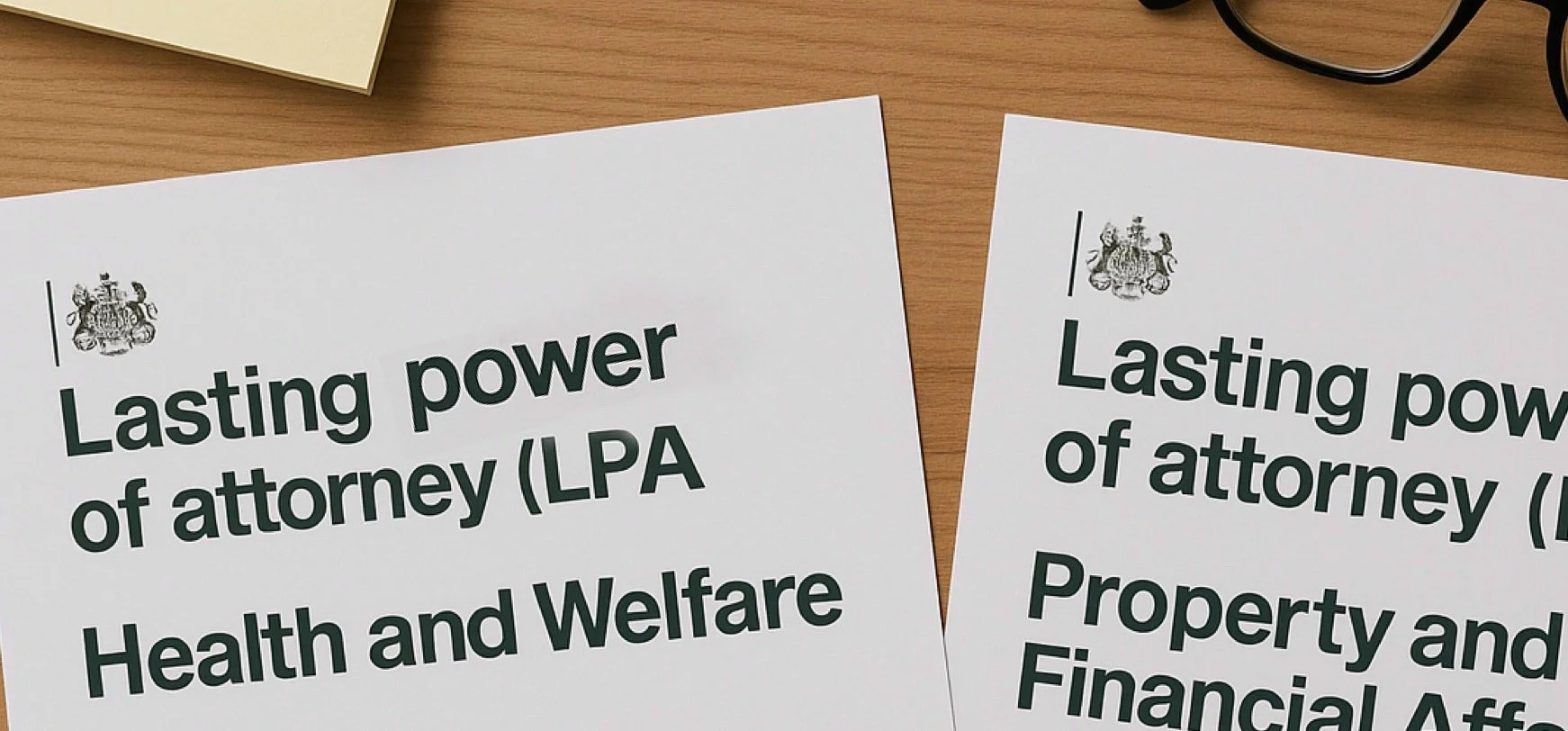Types of LPAs: Health & Welfare vs Property & Finance
When planning for the future, making a Lasting Power of Attorney (LPA) is one of the most important decisions you can make. It gives someone you trust the legal authority to make decisions on your behalf, if you ever lose the mental capacity to make them yourself.
But did you know there are two different types of LPAs? One covers your Health and Welfare, and the other deals with your Property and Finances. Both serve very different purposes - Enable and Thrive can be appointed to deal with either or both.
Health and Welfare LPA
This type of LPA gives your chosen person (known as your attorney) the power to make decisions about your everyday wellbeing and personal care.
What it covers:
Where you live (e.g. staying at home or moving into a care home)
Your daily routine (washing, dressing, eating)
Medical treatment and care
Life-sustaining treatment decisions (this can be as small as a course of antibiotics or a bigger decision in relation to an organ transplant)
What it doesn’t cover:
Any decisions about your money, property or bills
Why it matters:
Without this LPA, medical professionals may make decisions without fully knowing your personal wishes. Your family could be left feeling powerless or needing to go through lengthy legal processes to help you.
Property and Financial LPA
This LPA allows your attorney to manage your money, property and financial matters.
What it covers:
Managing bank accounts and savings
Paying household bills
Claiming pensions or benefits
Selling or maintaining your home
Making or selling investments
What it doesn’t cover:
Decisions about your personal care or medical treatment
Why it matters:
Having this LPA in place means someone can step in straight away if you’re unwell, abroad or simply need support with day-to-day financial tasks.
Do I need both?
In short - yes, ideally.
Since each LPA covers different areas of life, having both ensures your Attorneys can support all aspects of your care and decision-making, whatever happens. At Enable and Thrive, we support our clients using both types of LPAs and often find that the two documents work hand in hand when providing ongoing support.
Why not set up LPAs now!
Setting up an LPA isn’t just for the elderly - it’s a smart, proactive step for any adult. Life can be unpredictable, but putting these plans in place offers peace of mind for you and those you trust the most.
If you’re thinking about making an LPA, it’s wise to talk it through with a professional. This way, you can make informed choices and ensure your wishes are honoured, no matter what the future holds. It is also worth also considering having a ReSPECT form in place.


